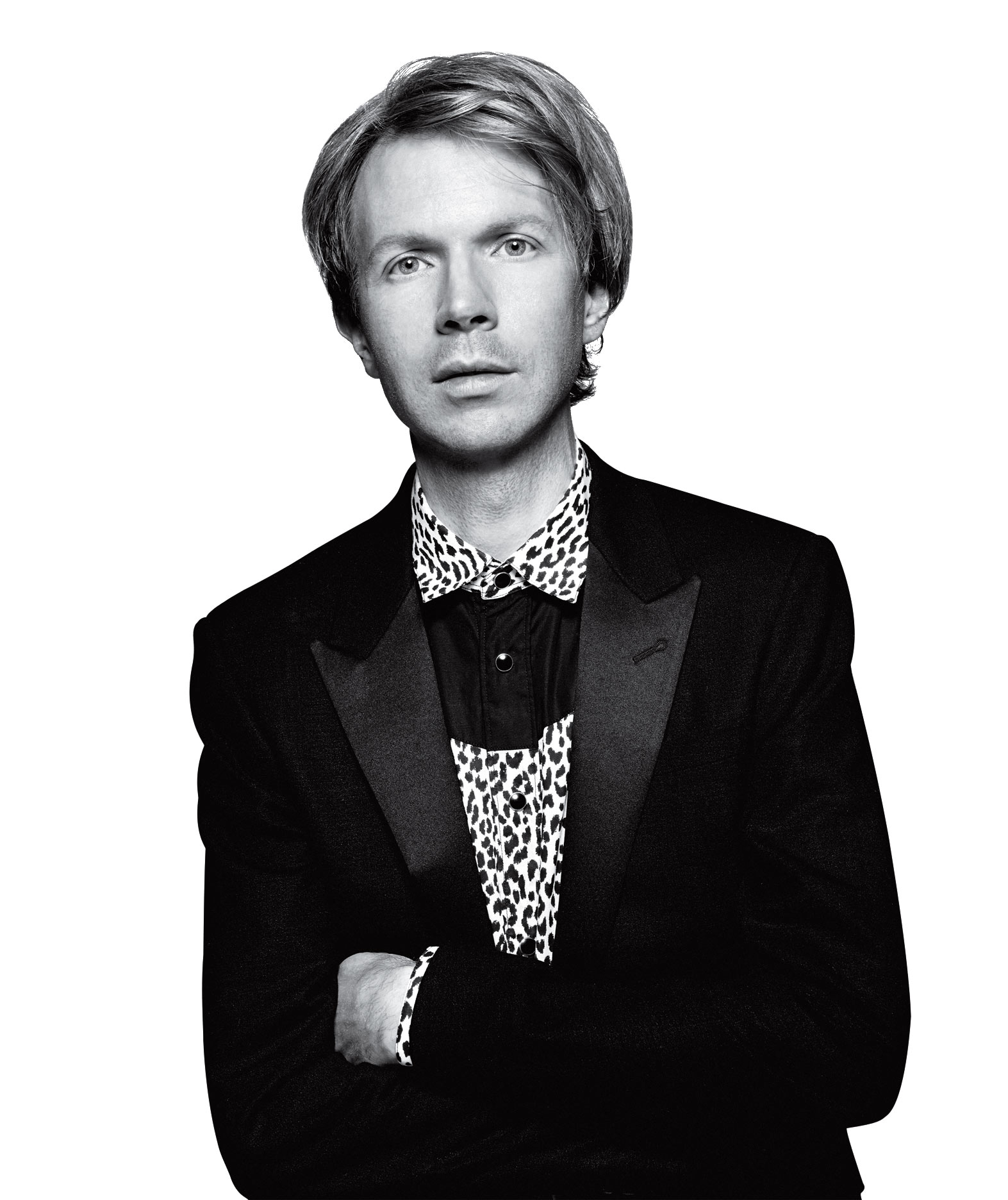
Critics are calling your new album, Morning Phase, a follow-up to Sea Change, which was a breakup album. Is it middle-aged parenthood that’s bringing you down now?
I don’t think it’s that. I was trying to write from a very simple human place. I was hoping to come up with something that was–had some basic human experience and perspective that other people could recognize and have as their own. But it is a tricky business to get these grand sentiments into a piece of music that isn’t, on the one hand, pretentious or overly sentimental or, on the other, doesn’t make you cringe.
Your dad worked on this album. Was it awkward if you didn’t like what he did?
It’s just a collaboration. There was a song where I wrote an entire string part, and then he did an edit, and then I did another edit of that. He’s very accommodating, probably one of the most humble people I’ve ever met.
Do you sometimes wish that it was Beck the band and not Beck the guy?
Yeah. I always wanted to be in a band. Had I found the guys I’m about to tour with when I was younger, it could have been a band.
Philip Glass said that when he plays his old stuff, it feels foreign to him. Does it feel that way when you play things from Odelay or Mellow Gold?
Not as much, because he has made about 300 albums. I wish I were that prolific. In my genre, it tends to be that you work on something and beat it to death, and then you play it every night for 2½ years. It’s burned into your nervous system and into your DNA at a certain point. I’m not saying it’s a positive or a negative. I don’t know what it is.
Do you mind being labeled eccentric?
It can be said in an affectionate way. But it also can be said in a way that kind of marginalizes creativity or art. I’ve always felt, when it’s too easy, that I want to pull it apart and ask, “What’s underneath this layer?” I think we should celebrate those things. We’re at a point now where a lot of pop music is fairly eccentric. It’s hard to say what’s normal.
Do you have a favorite failure?
Most of the failures you don’t get to hear. I’ve spared the world a good amount of those. I did this record Midnite Vultures–it was a sort of embracing of pop culture and outsider art and all these things mixed together. And there was a lot of negative response when it came out. But now a lot of younger musicians really like that one. So you never know.
Your wife Marissa Ribisi is an actress. How do you handle two careers and a family?
She’d given up acting before we got together, but she has a lot going on, oftentimes more than I do. I work a lot, but I’ve turned down things that would be good to do. There’s a finite window with kids.
You’re both Scientologists. Does anything that has been written about Scientology shake your faith?
It’s like anything in our culture. There are so many opinions. Public opinion is breathing and growing and changing all the time. Your own experience is ultimately what’s going to tell you what you think.
Do you listen to current music or only old stuff?
I go through periods of both. I had a period in the ’90s where I was just listening to music from the ’20s and ’30s. But now I’m listening to St. Vincent, Sigur Rós and the new Pharrell record. I worked with him about a year ago.
Is that when he stole your look and started wearing a hat?
That hat predates any hat that I have ever owned.
More Must-Reads from TIME
- Inside Elon Musk’s War on Washington
- Why Do More Young Adults Have Cancer?
- Colman Domingo Leads With Radical Love
- 11 New Books to Read in February
- How to Get Better at Doing Things Alone
- Cecily Strong on Goober the Clown
- Column: The Rise of America’s Broligarchy
- Introducing the 2025 Closers
Contact us at letters@time.com